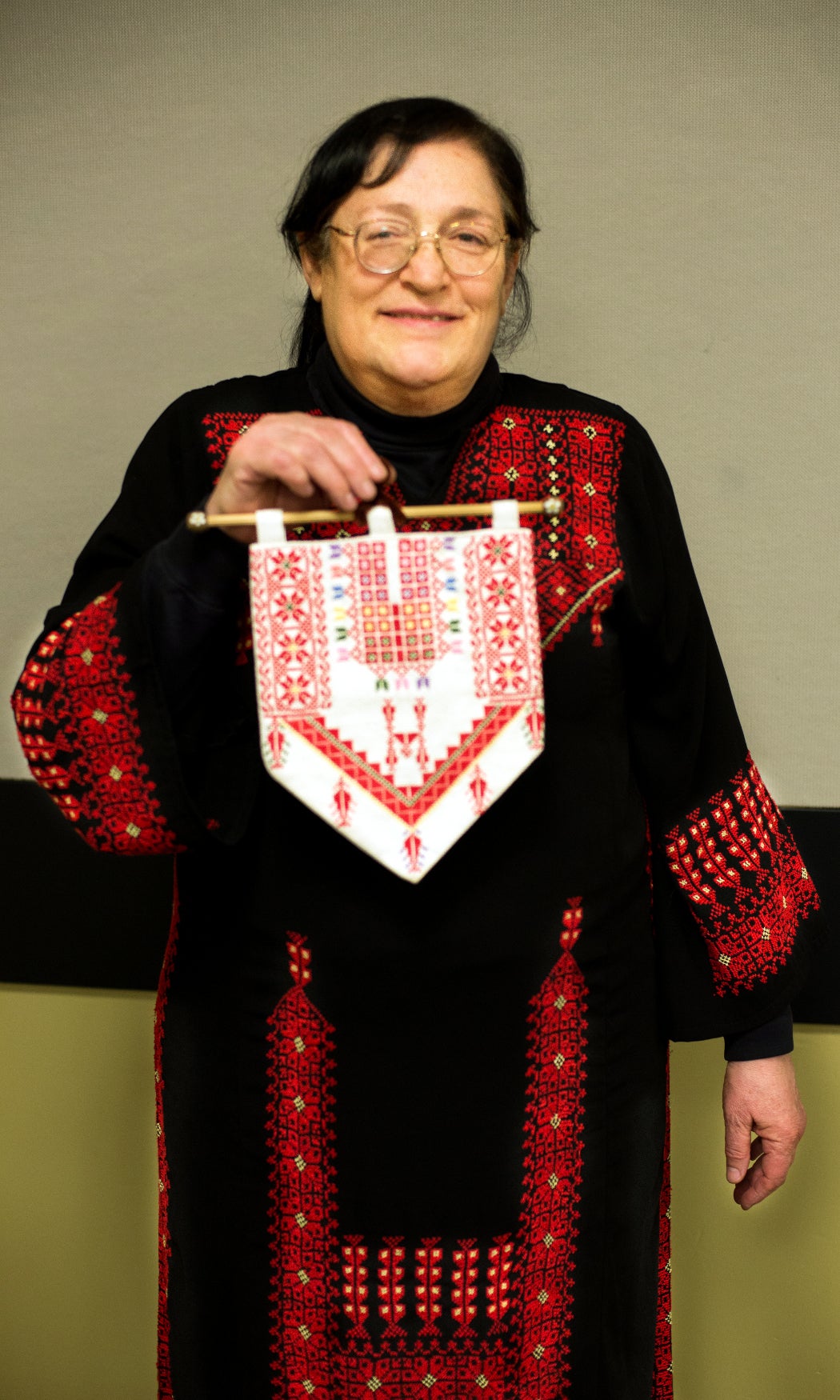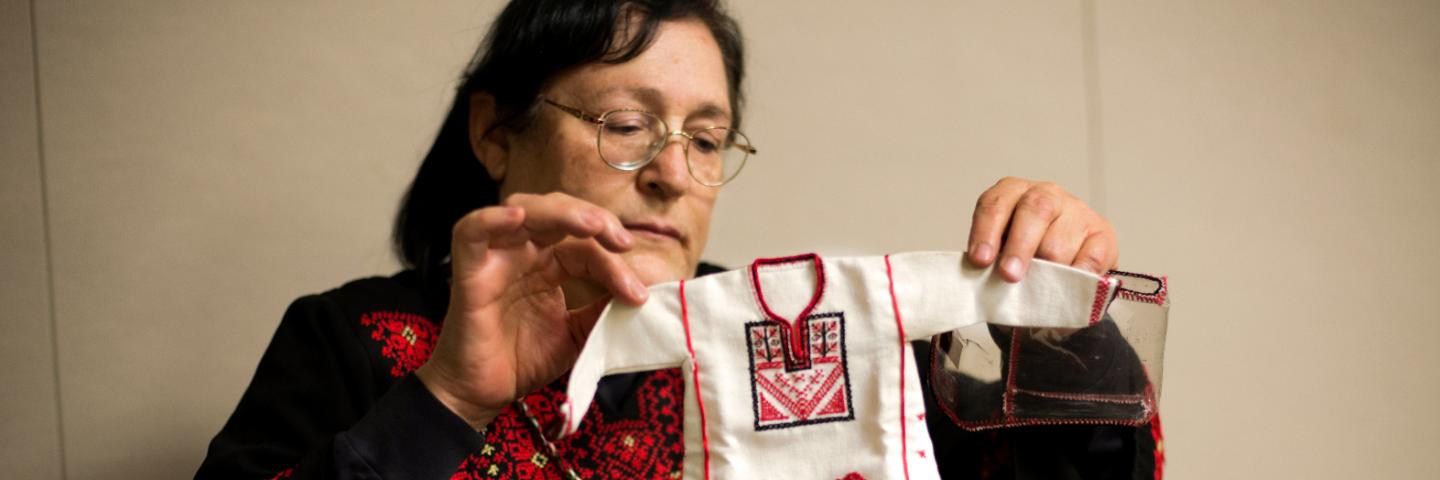 | Traditional Skill/Art Craft: Palestinian Embroidery Years Awarded: 2012, 2014, 2017 Contact Information: Phone: (503)652-0187 Email: feryalababgh@hotmail.com |
ARTIST BIOGRAPHY
I was born in the city of Safad in northern Palestine. My family fled during the war when Israel was established in 1948. As refugees, we went to Syria then to Jordan. I went to a boarding school in Ramalla West Bank, and then returned to Syria to attend Damascus University as s Art History major. I became an elementary, we immigrated to the United States in 1980. since then, I have mostly worked in non-profit organizations that focus on cultural traditions, folk art and oral history. I have lectured and taught about Palestinian traditions at the University of Massachusetts, the Oral History Center of Cambridge, Portland State University and Lewis and Clark College, to name a few. I worked collaboratively with the World Affairs Council of Oregon and the Middle East Studies Center to participate in the “Teach the Middle East” forum, which were workshop designed for youth, as well as training K-12 educators regarding the importance of Middle East culture, humanitarian and art education, before the political affairs. I also spent about 15 years doing workshops and classes at all educational levels in public schools, in Beaverton, Milwaukie, Gresham, and Portland.
I am married with three daughters, at least two of them had high college degrees, my husband is a banker.
APPRENTICE BIOGRAPHY - Amani Hawash 2017
Amani Hawash is a Palestinian woman who completed this apprenticeship with Feryal Abbasi-Ghnaim while she was in high school. Her family is from Nablus in West Bank, and she is able to visit Palestine regularly and intentionally connect with her Palestinian roots. She enjoys cooking traditional Palestinian dishes and speaks Arabic, she purchased the book Tatreez and Tea by Wafa Ghnaim to learn how to embroider traditional patterns. She hopes to continue learning and practicing the art of Tatreez and passing along the tradition to family members and friends throughout her community.
Q+A WITH THE MENTOR ARTIST
Describe your traditional art.
Body
Palestinian embroidery has a long history back to thousands of years, women documented their lives through this art, telling stories of the events that they lived through, history, political events, geography describing the nature around them, teaching the generations about the beauty an hazard of the surroundings, sending messages to each other through embroidery (using needle and thread). When reading and writing were not available. I learned the embroidery of the age of the seven years old from my mother and grandmother and the women around me, learning stories behind the embroidery.
Why is this cultural tradition important to your community?
Body
Embroidery is the unwritten language transferring stories from woman to woman in silence. Needle and thread are the tools of documenting the history of their lives. For thousands of years, Palestinian women have stitched their cultural observations and traditions into patterns that represent everything from beauty to significant historical events and personages. The stories behind the patterns, the colors of the thread and the fashion of traditional Palestinian dress are just as important as learning the cross-stitch and is something that can only be preserved through teaching and mentoring the younger generations. Palestinian embroidery is an endangered art, that over the last three generations we have already lost its memory in our social traditions, instead surfacing stories of war and occupation as well as the redefinition of Palestinian identity through biculturalism.
It was very hard for other women to teach their daughters the art considering the Palestinian lives in the exile. I carry a mission to help the other young Palestinians to learn it starting with my own daughters.
Experience/Honors
Body
Traditional Arts Apprenticeship Program Award (2012, 2014, 2017)
Oregon Folklife Program Apprenticeship Award (1993, 1995)
Massachusetts Folk Art Award (1985, 1986)
Feryal participated in numerous events and festivals in Massachusetts and Oregon, taught her art in several schools in Massachusetts and Oregon, and attended training through Folk Art of Oregon to teach in the classrooms and at-risk kids. Training through IRCO and many more events.
Visit OFN's Culture Keepers Roster to learn more about the artist.
Traditional Arts Apprenticeship Program
More OFN programs
OFN main page
